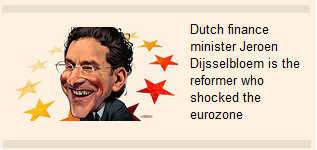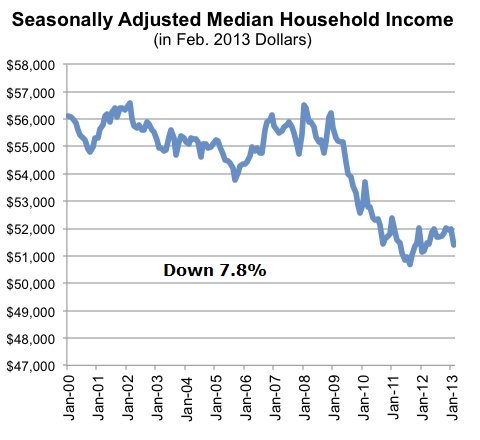|
NEW SERIES RELEASE MONETARY MALPRACTICE AVAILABLE NOW MONETARY MALPRACTICE: Deceptions, Distortions and Delusions MONETARY MALPRACTICE: Moral Malady MONETARY MALPRACTICE: Dysfunctional Markets
NOW SHOWING HELD OVER Currency Wars Euro Experiment Sultans of Swap Extend & Pretend Preserve & Protect Innovation Showings Below
FREE COPY... Current Thesis Advisory: CONTACT US
|
Mon. Apr . 1st , 2013 |
CYPRUS: Crumbling Property Rights Tuesday 03-26-13
What Are Tipping Poinits? |
Reading the right books? We have analyzed & included Book Review- Five Thumbs Up
| ||||||||||||||||||||||||||||||||||||||||||||||||||||||||||||||||||||||||||||||||||||||||||||||||||||||||||||||||||||||||||||||||||||||||||||||||||||||||||||||
|
|||||||||||||||||||||||||||||||||||||||||||||||||||||||||||||||||||||||||||||||||||||||||||||||||||||||||||||||||||||||||||||||||||||||||||||||||||||||||||||||||
"BEST OF THE WEEK " |
Posting Date |
Labels & Tags | TIPPING POINT or 2013 THESIS THEME |
HOTTEST TIPPING POINTS |
Theme Groupings |
||
| MOST CRITICAL TIPPING POINT ARTICLES TODAY | |||
EU - Policy Shift Threatens the View of Bank Deposits Bail-In Blues: Luxembourg Warns of Investor Flight from Europe 03-29-13 der Spiegel The debate over this week's "bail in" of bank account holders in Cyprus as part of the country's debt crisis bailout is continuing to simmer in Europe. In Luxembourg, Finance Minister Luc Frieden has warned that the example set in Cyprus by taxing people holding €100,000 ($129,000) or more in their accounts could drive investors out of Europe. "This will lead to a situation in which investors invest their money outside the euro zone," he told SPIEGEL. "In this difficult situation, we need to avoid anything that will lead to instability and destroy the trust of savers."
Earlier this week, Euro Group President Jeroen Dijsselbloem sparked an enormous controversy after stating that the solution found in Cyprus could be applied throughout the euro zone in the future. The remark triggered immediate criticism from his predecessor as head of the Euro Group, Luxembourg Prime Minister Jean-Claude Juncker. "It disturbs me when the way in which they tried to resolve the Cyprus problem is held up as a blueprint for future rescue plans," Juncker told German public broadcaster ZDF earlier this week. "It's no blueprint. We should not give the impression that future savings deposits in Europe might not be secure. We should not give the impression that investors should not keep their money in Europe. This harms Europe's entire financial center." But in the European Parliament, politicians are considering ways to make banks bear greater responsibility for their own financial problems. Lawmakers are considering the European Commission's proposed banking resolution legislation for faltering financial institutions. The discussion includes the possibility of future compulsory levies on major depositors, although it is more focused on placing greater responsibility for risks on other investors in banks. "We want to clearly strengthen the position of deposit customers," said Swedish European Parliament member Gunnar Hökmark. Under the proposal, deposits of up to €100,000 would be excluded from any loss participation at a bank. Any deposits over that amount would only get hit if the losses couldn't be fully covered through a bank's shareholders and other creditors. 'Societal and Political Acceptance Is Ending' The EU currently guarantees all deposits under €100,000, but this policy was called into question two weeks ago after the finance ministers of the euro zone decided to make small-scale savers contribute to the bailout of the Cypriot banking sector. Ultimately, Cyprus issued a one-time levy only against depositors with €100,000 or more in their accounts, the first time that personal bank accounts have been hit in Europe as part of a formal bailout package. Under current EU policy, private creditors will not be required to cover banking imbalances until 2018. But in Germany, Andreas Dombret, a board member of the Bundesbank, the country's central bank, would like to implement the new rules much sooner, by 2015. And Carsten Schneider, the budget policy expert for the opposition center-left Social Democrats, says he believes the rules for winding down banks should be implemented as soon as 2014. "Societal and political acceptance is ending for the model of bank rescues in which the state protects bond holders and major investors," said Schneider. dsl/SPIEGEL |
04-01-13 | EU MONETARY |
4- EU Banking Crisis |
THE CYPRUS IMPACT - Crumbling EU Foundation Principles The Seven Broken Taboos Of The Cyprus Deal 03-31-13 Barclays via ZH The euro’s core founding principles, based on the Maastricht Treaty’s:
According to Barclays: From a European perspective, the list of broken taboos and assumptions continues to grow. It includes:
The euro will never be the same again; its preservation now depends urgently upon economic recovery. Without the delivery of economic growth, unemployment will rise to yet higher post-war record levels, and the widespread and growing disillusionment felt by EU citizens towards their economic regime will threaten to spill over into more explicit questioning of the euro’s suitability. |
04-01-13 | EU | 4- EU Banking Crisis |
FALLING BEHIND - Here is Why
|
04-01-13 | US INDICATORS CATALYSTS DI |
US ECONOMICS |
|
The Puppet Master: Government 03-31-13 Bill Buckler, author of The Privateer via ZH The Puppet Master - Government It has been well and often said that only two types of “paper” money have ever existed in history - those that are already worthless and those that are going to be. Eventually, the physical pieces of paper or plastic which have been given a function as a medium of exchange by government order may remain - but their purchasing power on the market does not. The transition point always comes when the “promises to pay” on which the fiat money depends are exposed beyond the possibility of denial to be the LIES which they always were. History is replete with examples, yet very few ask the obvious question: “Pay? - WITH WHAT??” One of the great wonders of the twentieth century was the lengths to which the economics “profession” proved willing to go to avoid even facing that question let alone trying to answer it. For hundreds if not thousands of years of human history, the vast majority were all too well aware that the government “lives” on the backs of the people. Today, that long-held knowledge has been astonishingly successfully reversed. Today, the perceived “wisdom” is that the people live on the back of the government. In the realm of the history of ideas, it took many centuries to bring forward the idea that a life might be lived without constant kowtowing to government. It has only taken one century - the time since WW I - to all but totally submerge that legacy in a new wave of government dependency. The old and tired phrase - “I’m from the government and I’m here to help you” - is met by as much derision as it has ever been when people bemoan the impositions of their rulers. But those same people rely on the government to insulate them from the consequences of any action they may choose to undertake. There are people who love government, people who hate it, and people who fear it. But when the chips are down, the majority of those same people profess to have “confidence” in the government’s power to protect their “welfare”. Governments count on that confidence” above all other things. Short On Credit And Long On Faith The ignorance over the mechanisms and procedures which power the modern global financial and monetary system is fiercely held. When it comes to the general public, we have seen demonstrations of that on numerous occasions over the past few years, the latest being in Cyprus. As was the case in all previous like instances in other nations in Europe and elsewhere, very few of those demonstrating in the street have ever thought about the TRUE nature of the banks, central banks and governments in which they place their “trust”. Many reports on the anger of the Cypriots have talked about the end of the “age of innocence”. Unfortunately, the term innocence is not defined as the fierce refusal to see what is right in front of one’s face. At the end of his great work, Human Action, Ludwig von Mises dealt with the real problem like this:
Human Action was published in 1949. The problems which von Mises so brilliantly dissected then are incomparably worse now. But the main failing remains the same. Those who refuse to gain the knowledge necessary to stand for something will fall for anything. The result in Cyprus is the latest in a long line of similar cases. To give one example, how many of the “Occupy Wall Street” crowd could give a cogent explanation of what they were protesting against? The specific instances may differ, but the reaction remains the same: “But ... BUT ... YOU TOLD US IT WAS ‘SAFE’!!” What makes it worse is that most knew that it was NOT ‘safe’ - but they refused to admit it to themselves. |
04-01-13 | THESIS | |
| MOST CRITICAL TIPPING POINT ARTICLES THIS WEEK - Mar. 31st - Apr 6th 2013 | |||
| RISK REVERSAL | 1 | ||
| JAPAN - DEBT DEFLATION | 2 | ||
| BOND BUBBLE | 3 | ||
EU BANKING CRISIS |
4 |
||
| SOVEREIGN DEBT CRISIS [Euope Crisis Tracker] | 5 | ||
| CHINA BUBBLE | 6 | ||
| TO TOP | |||
| MACRO News Items of Importance - This Week | |||
GLOBAL MACRO REPORTS & ANALYSIS |
|||
US ECONOMIC REPORTS & ANALYSIS |
|||
| CENTRAL BANKING MONETARY POLICIES, ACTIONS & ACTIVITIES | |||
| Market | |||
| TECHNICALS & MARKET |
|
||
| COMMODITY CORNER - HARD ASSETS | |||
| THESIS Themes | |||
2013 - STATISM |
|||
2012 - FINANCIAL REPRESSION |
|||
2011 - BEGGAR-THY-NEIGHBOR -- CURRENCY WARS |
|||
2010 - EXTEN D & PRETEND |
|||
| THEMES | |||
| CORPORATOCRACY - CRONY CAPITALSIM | |||
| GLOBAL FINANCIAL IMBALANCE | |||
SOCIAL UNREST |
|||
CENTRAL PLANNING |
|||
STANDARD OF LIVING |
|||
| NATURE OF WORK | |||
| CATALYSTS - FEAR & GREED | |||
| TO TOP | |||
|
|||
Tipping Points Life Cycle - Explained
Click on image to enlarge
TO TOP
�
TO TOP
|
FAIR USE NOTICE This site contains copyrighted material the use of which has not always been specifically authorized by the copyright owner. We are making such material available in our efforts to advance understanding of environmental, political, human rights, economic, democracy, scientific, and social justice issues, etc. We believe this constitutes a 'fair use' of any such copyrighted material as provided for in section 107 of the US Copyright Law. In accordance with Title 17 U.S.C. Section 107, the material on this site is distributed without profit to those who have expressed a prior interest in receiving the included information for research and educational purposes.
If you wish to use copyrighted material from this site for purposes of your own that go beyond 'fair use', you must obtain permission from the copyright owner. DISCLOSURE Gordon T Long is not a registered advisor and does not give investment advice. His comments are an expression of opinion only and should not be construed in any manner whatsoever as recommendations to buy or sell a stock, option, future, bond, commodity or any other financial instrument at any time. While he believes his statements to be true, they always depend on the reliability of his own credible sources. Of course, he recommends that you consult with a qualified investment advisor, one licensed by appropriate regulatory agencies in your legal jurisdiction, before making any investment decisions, and barring that, we encourage you confirm the facts on your own before making important investment commitments. COPYRIGHT © Copyright 2010-2011 Gordon T Long. The information herein was obtained from sources which Mr. Long believes reliable, but he does not guarantee its accuracy. None of the information, advertisements, website links, or any opinions expressed constitutes a solicitation of the purchase or sale of any securities or commodities. Please note that Mr. Long may already have invested or may from time to time invest in securities that are recommended or otherwise covered on this website. Mr. Long does not intend to disclose the extent of any current holdings or future transactions with respect to any particular security. You should consider this possibility before investing in any security based upon statements and information contained in any report, post, comment or recommendation you receive from him
|























 In Luxembourg, leaders are warning that applying the Cypriot bailout model -- a levy on bank deposits -- to other crisis-plagued countries could lead to a flight of investors from Europe. But the EU is considering the option anyway.
In Luxembourg, leaders are warning that applying the Cypriot bailout model -- a levy on bank deposits -- to other crisis-plagued countries could lead to a flight of investors from Europe. But the EU is considering the option anyway.



